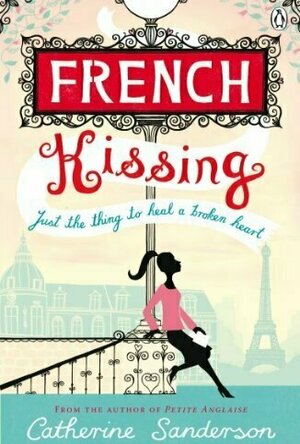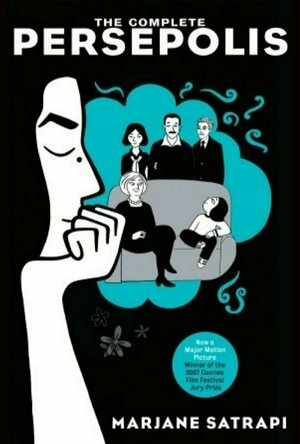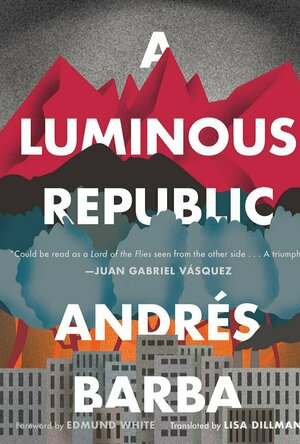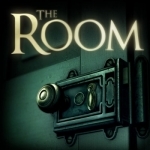
The Room
Games
App
Welcome to The Room, a physical puzzler, wrapped in a mystery game, inside a beautifully tactile 3D...
The room Puzzle Puzzler Atmospheric Clever games

Covered in Flour: 1968: A Young Boy's Perspective on School, Family, and Changing Times
Book
It's 1968 in Whisper Haven, and 8-year-old Carl Pozzi's world is about to change. For...
Biographical Historical Fiction
Ivana A. | Diary of Difference (1171 KP) rated French Kissing in Books
Aug 3, 2020
<a href="https://diaryofdifference.com/">Blog</a>; | <a href="https://www.facebook.com/diaryofdifference/">Facebook</a>; | <a href="https://twitter.com/DiaryDifference">Twitter</a>; | <a href="https://www.instagram.com/diaryofdifference/">Instagram</a>; | <a href="https://www.pinterest.co.uk/diaryofdifference/pins/">Pinterest</a>;
<img src="https://diaryofdifference.com/wp-content/uploads/2020/07/Book-Review-Banner-65.png"/>;
<b><i>"French Kissing" by Catherine Sanderson is one of those romance novels you enjoy for a few days and then forget how it ended. </i></b>
<b>Synopsis:</b>
Sally Marshall decided to try a French online dating site. This was after she leaves her long-term boyfriend and Lila's father when she discovers he was cheating on her. With his secretary. After six months of healing, Sally is now ready to find her perfect match.
However, online dating has its downside. Meeting weird and creepy men, having one-night stands and being judged that she is a mother. Sally has to go through self-discovery in her journey to happiness.
<b>My Thoughts:</b>
"French Kissing" was average. It is very well written, but it follows a plot that, to me, has been overused by many writers, especially in the romance genre. It becomes another drop of water in the sea.
Sally is a very normal character and easy to love. She is struggling with the online dating. She believes she is at a disadvantage due to being a mother and her journey will teach her that she just hasn't met the right person yet. I am not a mother, and I don't know how Sally must truly feel, but I can imagine this situation being a big burden to her. Also, considering how men behave in today's world, where they want as little responsibility as possible and they are very reluctant to date women that already have children - I can understand how difficult this is for Sally. On the same aspect, this means that this is not Sally's fault. There is always someone out there that will be able to love her just the way she is - daughter included.
I liked the fact that this book was set in France. It gave a nice charm to it. However, on many occasions, there are French sentences with no explanation nor translation. If you don't understand French, you should buy a dictionary when you are buying this book. I can imagine this being an issue for many readers.
To conclude - it was an okay read. It will fill up your time nicely and bring you on an adventure of self-discovery. Perhaps you will also be able to connect with Sally on a whole new level. I wouldn't say "French Kissing" is a favorite, nor would I recommend it on the spot if someone asked me. However, if you love romances set in France with a focus on online dating - this might be worth your time.
Ivana A. | Diary of Difference (1171 KP) rated The Complete Persepolis in Books
Apr 20, 2020
<a href="https://diaryofdifference.com/">Blog</a>; | <a href="https://www.facebook.com/diaryofdifference/">Facebook</a>; | <a href="https://twitter.com/DiaryDifference">Twitter</a>; | <a href="https://www.instagram.com/diaryofdifference/">Instagram</a>; | <a href="https://www.pinterest.co.uk/diaryofdifference/pins/">Pinterest</a>;
<img src="https://diaryofdifference.com/wp-content/uploads/2020/03/Book-Review-Banner-25.png"/>;
<b><i>The Complete Persepolis is a graphic novel written by Marjane Satrapi that covers her life. This is a memoir of growing up as a girl in revolutionary Iran.</i></b>
This is a story of Satrap's childhood; growing up in a loving family in Tehran during the Islamic Revolution. We also follow Marjane in her high school years in Vienna. It is an interesting journey of a young girl becoming an independent woman.
<b><i>My Thoughts:</i></b>
I enjoyed the graphic novel style. It is an interesting concept of telling a story and I really liked it. It was easy to read and quick to engage with.
Even though I liked Marjane’s story, I didn’t like Marjane as a character. She seems a bit too arrogant. She seemed to always need to prove to the world who she is and what she is about. I have met a few people like that in my life and found them annoying.
It was really interesting to read about the culture and history of Iran and I loved the places in the book where they showed us the major differences in culture and beliefs. Growing up in Macedonia, I am no stranger to this culture, nor the beliefs, as Macedonia is a country with many different nationalities and religions living together. I have seen things, and I have heard things.
The writing was very humorous and the story plot was quite interesting. I didn't really feel any emotions during the book, but the sad ending really got me. What a way to finish a book.
<b><i>In conclusion, I have mixed feelings about The Complete Persepolis, only due to the way the character was set up and her attributes. However, I loved the representation of Iran, the way we are thrown into the culture and mindset, and how this book made me think twice.</i></b>
<a href="https://amzn.to/2Wi7amb">Wishlist</a>; | <a
<a href="https://diaryofdifference.com/">Blog</a>; | <a href="https://www.facebook.com/diaryofdifference/">Facebook</a>; | <a href="https://twitter.com/DiaryDifference">Twitter</a>; | <a href="https://www.instagram.com/diaryofdifference/">Instagram</a>; | <a href="https://www.pinterest.co.uk/diaryofdifference/pins/">Pinterest</a>;
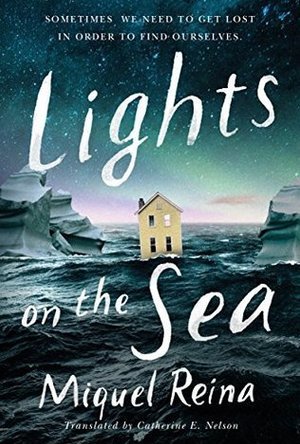
Lights on the Sea
Book
"Miquel Reina's Lights on the Sea is an absolutely lovely, beautiful novel with a dreamy, fable-like...
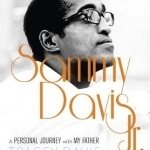
Sammy Davis Jr.: A Personal Journey with My Father
Tracey Davis and Nina Bunche Pierce
Book
Nicknamed Mr. Show Business, Sammy Davis Jr. was a consummate performer who sang, danced, and acted...
Hadley (567 KP) rated A Luminous Republic in Books
Aug 13, 2020
We first meet our main character, whose name is never given throughout the entire story, when he and his family are moving to San Cristobal because of a job opportunity. He works for the Department of Social Affairs, and has just received a promotion because he has come up with a very successful plan: " I had developed a social integration program for indigenous communities. The idea was simple and the program proved to be an effective model; it consisted of granting the indigenous exclusive rights to farm certain specific product." Our main character believes that this plan will bring the farmers more money. And he is more than happy to go back to the city where he fell in-love with his now wife, Maia - - - a violin teacher who had a daughter before meeting him, who he calls 'girl' throughout the story because she is also named Maia.
While on his way to work one day, our main character comes across one of the unknown children of the jungle, which shakes him up a bit. The unknown jungle children were known to beg at street lights for money and food, but one of the grimy, frizzy-haired boys stared the man down, only to end up giving him a very wide smile. "The boy's smile unsettled me because it confirmed that there had been a connection between us, that something had begun in me ended in him." Pretty soon after, he begins to notice these unknown jungle children running around a lot more, and that sometimes their intentions are not always innocent - - - he and the 'girl' witness an elderly woman get robbed of her groceries by a group of these children in the middle of the street in a subtle but violent way.
The unknown jungle children soon begin to rob several people,and when a police officer is killed while being attacked by them, the Mayor and the police want the children off the streets as soon as possible. Working with our main character, the former and the latter try to figure out the strange language these children use, whom may be the leader among them, and where they disappear to at night. Since the story is being told from our main character's past, the book is written like a True Crime story, with names of professionals and such being cited throughout. Our main character brings up a woman, who was a young girl at the time of the jungle children's invasion on San Cristobal: Teresa Otano, who happened to 'publish' her diary from that time, which gives readers insights into the jungle children: "Often, some of the thirty-two [jungle children], on their nightly journey back to the jungle, congregated next to Teresa's house, on one corner of Antartida Avenue. At first, Teresa, enthralled, simply makes notes, logging the days on which they appeared, whether there were three, four or five of them, what they were wearing, and so forth. She establishes patterns and identifies a few of the kids..." our main character explains to the reader.
But soon, the children cross a line that they can never come back from; being told by our main character from the view of surveillance video tapes, he describes to us that the jungle children entered a supermarket after an incident with a guard that works there, they block the entrance doors and begin to destroy items throughout the store, but the chaos quickly escalates, and two adults are murdered by the children - - - fear now holds the town in its grip, causing search parties to sweep through the dense jungle after the children fled.
But murder wasn't something new to San Cristobal, our main character explains to us that the suburbs of this area usually had a murder a week all year long, and that on the outskirts of the jungle, there were known spots for drug trafficking and assaults. What made the 'Dakota Supermarket' murders scare the town was that the residents' own children began to behave differently afterwards - - - they start to play a 'game' where they put their ears to the ground, believing that they can hear the jungle children talking to them. Our main character even walks in on the 'girl' playing this exact game. "For a second it was as if I were witnessing a ritual invented by a twelve-year-old girl, and I thought of how afraid my daughter must have felt when I found her in the bathroom that day. People often remark on the self-assured quality of the invocation, its instruction-manual tone, but I'd say that its intensity actually stems from what it dispenses: adult logic, a world that no longer serves. How could our children possibly have explained to us what they were doing? We weren't prepared for their world or their logic. Somewhere out there, underground, that dissonant sound was being sent, in code: down below, chaos. "
This phenomenon attracts the attention of money/fame seekers, which includes the Zapata children. Four siblings, ranging from the ages of five to nine, claimed that the jungle children were speaking to them through their dreams. They would make drawings from what they were told by the jungle children, but state that even they didn't know what the drawings meant. The media quickly jumped on them and put them in front of a camera, causing the family's home to be surrounded by civilians at all hours of the day and night. One night, the crowd outside becomes anxious, and breaks into the house, stealing not only the drawings from the Zapata children, but also the life savings of the family. At this point, the Zapatas had had enough, and retreat from the story altogether for reasons I won't disclose here. I can't give away much more of the book without ruining the story.
Barba's attempt at making a different kind of Lord of the Flies was done well, but the lack of emotion is felt throughout the entire story which makes the characters flat, especially our main character, who I didn't find likable in any such way. He calls a grieving woman a 'whore,' and he seems rude towards his family, especially his step-daughter.
A Luminous Republic is redeemed by is unpredictability, which is something that doesn't come along in fiction that often anymore. I enjoyed that the story was written like a True Crime novel, with fictitious documentaries, news reports and books. So, I would recommend this book to people who like True Crime and Mysteries.
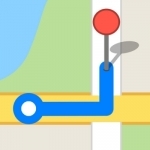
ForeverMap 2 - Worldwide Offline Maps and Online Maps
Travel and Navigation
App
No Marketing gloss, just facts now. A map with global coverage (OSM). You choose: online maps or...
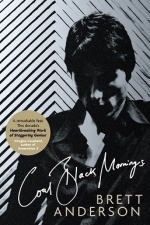
Coal Black Mornings
Book
Brett Anderson came from a world impossibly distant from rock star success, and in Coal Black...

Vehicle Log Book GPS PRO
Business and Finance
App
Vehicle Log Book PRO is your ultimate vehicle travel TAX companion for business or private use -...
